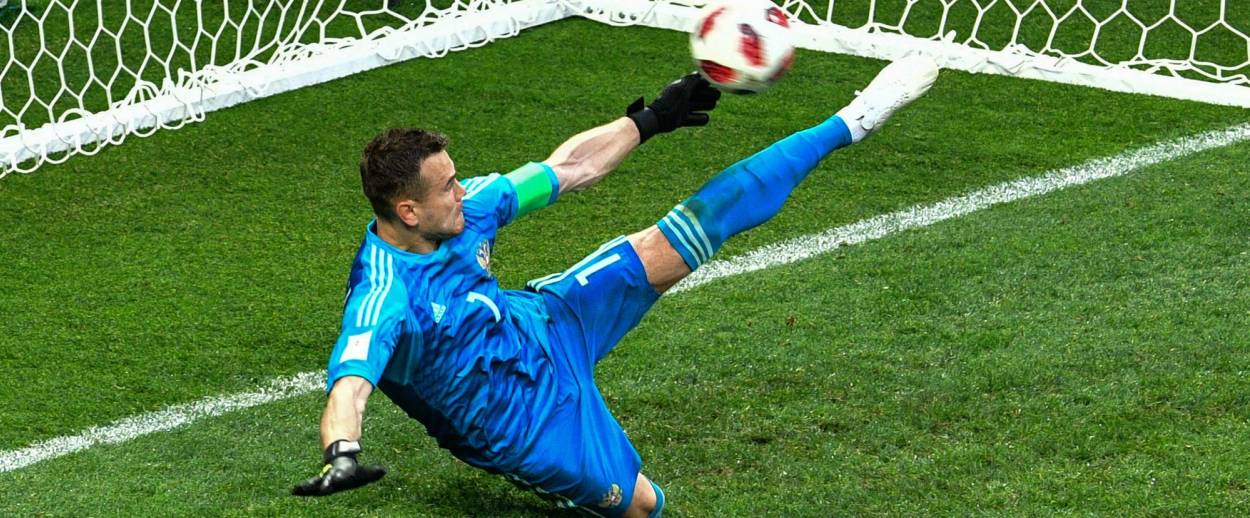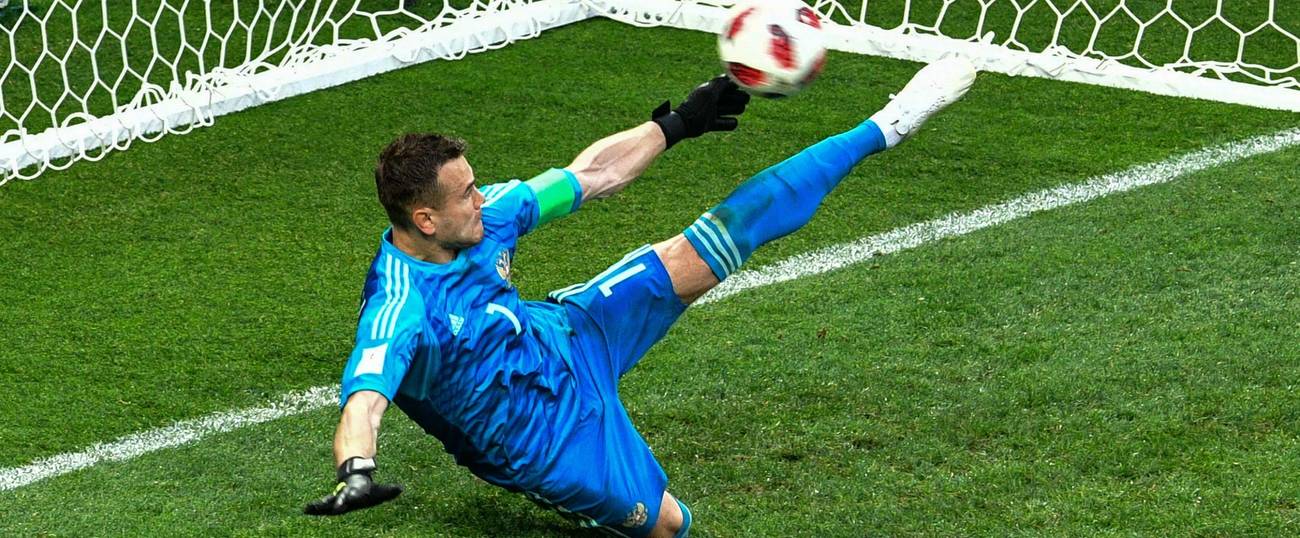Is Israel to Blame for That Really Awful Day Yesterday in the World Cup?
Sort of: We owe the blight that is the penalty shootouts to one Yosef Dagan




If you, like most of the rest of the world but unlike most Americans, spent yesterday watching the first two games of the Round of 16, you likely walked away reeling with resentment, fatigue, and more than a little bit of disgust. That’s because both games were decided by that most infuriating, nerve-shredding of methods, the penalty shootouts. And, apparently, we’ve an Israeli gentleman to blame for that.
For the uninitiated, the penalty shootouts occur once both regulation time and overtime deliver nothing but a draw. As one team must advance to the next stage, players take turns kicking penalty shots, a contest of wills and minds between striker and goalkeeper. A slip of the foot, a bit of bad luck, an eighth of an inch in the wrong direction, and dreams of the golden cup are all over. Soccer fans, accustomed to seeing their idols deliver long and uninterrupted feats of athletic mastery, are not too keen on such chaotic randomness; 120 minutes of intense play is too long to have cheered through only to see your hopes dashed more or less at random. Everybody hates the shootouts, which is why yesterday was a day the likes of which most of us hope never to witness again anytime soon.
Which brings us back to Dagan. While penalty shootouts as a means of deciding games have been around since the 1950s, FIFA, global soccer’s governing body, used to have another method of deciding games that ended in a draw. Israel learned about it the hard way in the Mexico City Olympic Games of 1968: Having tied with Bulgaria in the soccer quarter-finals, the captains of both teams were asked back onto the pitch, where they were presented with a giant sombrero containing two slips of paper. Motaleh Spiegler, the Israeli team’s leader, removed one of them and unfolded it. On it was just one word: “No.”
The late sports writer Yechiel Arazi later said in an interview that “Motaleh said afterward, half in jest, that there were two slips of paper with ‘no’ written on them, in the hat. Our feeling was that it might have been true.”
Heartbroken and more than a bit annoyed, the Israelis set out to fix the problem. Yosef Dagan, then the secretary of the Israel Football Association and a well-connected operator in international soccer, believed penalty shootouts were the answer. Sure, they weren’t elegant, but at least they involved some skill rather than just rely on the luck of the draw. He took it up with Michael Almog, the association’s deputy chairman, and Almog wrote FIFA a letter.
“My opinion is that if the winner is decided by drawing lots, it is not a sportive way to win a competition,” he wrote. “I propose to stop this way of deciding the winner by drawing lots, an immoral and even cruel system for the losing team and not honorable for the winner.” The alternative, he noted, was five penalty kicks for each team at the end of overtime.
The letter was sent on July 24, 1969. To everyone’s surprise, including Dagan and Almog, FIFA listened, and fast: The proposal was introduced and quickly approved in a meeting of February of 1970. In June of that year, the international federation published its new regulations, announcing that games that ended in a tie would now be decided by “the taking of penalty kicks.”
The rest is soccer history. Four World Cups later, in 1982, with France and West Germany tied 3-3 after overtime, the world witnessed its first penalty shootout, with the Germans prevailing, 5-4. Fans hated it. We still do.
Is there a better way? A thousand modest proposals have emerged over the years to do away with the injustice of the shootouts, including having them occur between regulation and overtime, giving both teams a little breather as well as another chance to fix the awful randomness of it all. Maybe one day we’ll evolve. For now, we’re stuck in penalty purgatory, and we’ve one well-meaning gentleman from Tel Aviv to thank.
Liel Leibovitz is editor-at-large for Tablet Magazine and a host of its weekly culture podcast Unorthodox and daily Talmud podcast Take One. He is the editor of Zionism: The Tablet Guide.